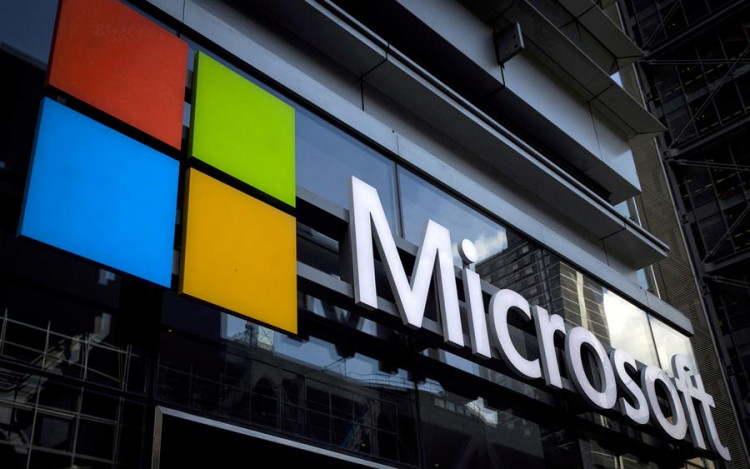Microsoft, known as a standard bearer for AI, is ramping up its commitment to the technology, its latest financial report indicates.
Microsoft revealed its Q4 financial results, showcasing both revenue and profit surpassing Wall Street predictions. However, the slowing growth rate of cloud services, the yet-to-be-realized impact of AI, and increasing capital expenditure on AI services led to a drop in Microsoft's post-market stock price.
The report indicated an 8% year-on-year increase in Q4 revenue, totaling $56.2 billion, exceeding the market forecast of $55.49 billion. Adjusted earnings per share saw a 21% YoY increase at $2.69, surpassing the expected $2.56. The capital expenditure of interest to the market was $8.94 billion, also above the projected $7.85 billion.
Reviewing the entire financial year, Microsoft's revenue growth slowed to 7%, which is less than the past five years' rate exceeding 10%. The capital expenditure for this quarter reached its highest total since the 2016 financial year.
Meanwhile, the YoY growth rate for revenue from Azure and other cloud services, adjusted for foreign exchange fluctuations, was 27%. Compared to the previous quarter's 31%, this indicates a further slowdown. Microsoft is projecting a decelerated growth rate of 25-26% for Q1 2024.
During the post-earnings call, Microsoft CFO Amy Hood mentioned that as the company builds new data centers to support AI, capital expenditures will continue to rise each quarter throughout the 2024 fiscal year. These expenditures will be dedicated to data centers, CPU chips, GPU chips, and networking equipment. Following the earnings call, Microsoft's stock price fell nearly 4% in after-hours trading.
AI Impact to "Appear in the Second Half of the Financial Year"
So far, Microsoft's investment in AI has yet to significantly boost revenue.
Most of Microsoft's major product lines have incorporated a range of new AI programs based on OpenAI models, with market demand for these services surging.
Nevertheless, Microsoft's Office productivity suite, which includes embedded AI components, is not yet widely used. After several years of increasing corporate investment, overall spending on Azure cloud services and Office applications is slowing. Simultaneously, Microsoft's PC shipments have fallen for the sixth consecutive quarter, impacting sales of Windows software and Surface devices.
Hood noted that despite Copilot not yet being ready for full release, the demand for Microsoft's AI services is strong and leading in the industry. The impact of this product line is expected to appear in the second half of the new fiscal year.
Talking about AI technology, Microsoft Chairman and CEO Satya Nadella expressed optimism about the opportunities that Microsoft Copilot presents:
"Companies are not only asking how, but also how quickly they can securely and responsibly apply next-generation artificial intelligence to tackle their biggest opportunities and challenges. We remain focused on leading the new AI platform transition, helping customers derive the most value from their digital spending with the Microsoft cloud, and increasing operational leverage.
"I truly believe that people will consider how to use these Copilots to supplement their operating expenses, to increase efficiency, and frankly, even to reduce the burden of operating expenses and personnel."
Earlier this month, Microsoft announced a monthly subscription fee of $30 per user for its Office 365 Copilot. This means that business users currently using Office 365 who wish to use Copilot will incur an additional monthly fee of $30.
Some analysts believe Microsoft's pricing strategy is too aggressive and expensive, while others anticipate it will boost the company's revenue.
Wedbush analyst Dan Ives commented that the announced pricing will expand Microsoft's cloud computing AI market opportunity, potentially increasing annual cloud revenue by 20% as early as 2025.
Citibank analyst Tyler Radke also wrote that the pricing is far higher than our prediction of $5 to $20 per month. Although it may be several months before it's fully launched, we see this as a tremendous positive.






